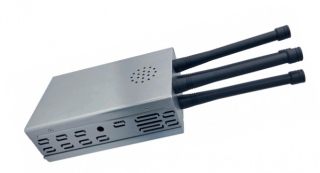Can a signal booster be used to counteract the impact of a signal jammer?
Why use cell phone blockers?
The necessity of signal jammers in environments with poor cellphone etiquette is a topic of debate. Nonetheless, their prohibition is justified by the potential dangers they pose to public safety and communication networks.
Are cell phone blockers legal?
The integrity of communication networks in South Africa is highly valued, resulting in the strict prohibition of mobile jammers by law. Similar to various jurisdictions globally, the deployment of these devices breaches the legal framework established to safeguard public safety and maintain the reliability of communication channels.
The illegality of South African signal jammers arises from their inherent interference with authorized radio communications. These jammers pose a substantial risk to public safety by disrupting the transmission of signals between mobile devices and cell towers. This interference can impede crucial emergency calls, cause response times to be delayed, and potentially put lives in danger. Additionally, signal jammers can disrupt law enforcement communications, hinder the effectiveness of police operations, and endanger public safety.
Does a signal booster work against cell phone jammers?
Sadly, the signal booster proves to be ineffective against the signal jammer's interference. This is primarily because signal jammers deliberately disrupt the transmission of cellular signals, thereby hindering the signal that the signal booster is designed to amplify.
The primary role of a signal booster is to capture a cellular signal from outside a building or vehicle, amplify it, and then retransmit the boosted signal within a designated area. Nevertheless, when a signal jammer is activated, it disrupts or replaces natural cellular signals, preventing the signal booster from efficiently capturing and amplifying them.
Detect and respond to cell phone jammers
Detecting signal jammers proves to be a significant hurdle for the average consumer, given their stealthy characteristics and the lack of apparent signs. Although service disruptions or abrupt connection loss can signal the existence of jammers, these indications may also be the result of other factors like network congestion or technical malfunctions.
Pinpointing the exact location of a signal jammer often necessitates specialized equipment or expertise that is typically beyond the reach of most consumers. Advanced spectrum analyzers or RF detectors are commonly required to accurately identify the source of interference. Given these challenges, it is recommended to seek assistance from law enforcement agencies or relevant regulatory bodies if there are suspicions of illegal interference activities. These authorities have the necessary resources and expertise to effectively investigate and resolve such incidents.
The necessity of signal jammers in environments with poor cellphone etiquette is a topic of debate. Nonetheless, their prohibition is justified by the potential dangers they pose to public safety and communication networks.
Are cell phone blockers legal?
The integrity of communication networks in South Africa is highly valued, resulting in the strict prohibition of mobile jammers by law. Similar to various jurisdictions globally, the deployment of these devices breaches the legal framework established to safeguard public safety and maintain the reliability of communication channels.
The illegality of South African signal jammers arises from their inherent interference with authorized radio communications. These jammers pose a substantial risk to public safety by disrupting the transmission of signals between mobile devices and cell towers. This interference can impede crucial emergency calls, cause response times to be delayed, and potentially put lives in danger. Additionally, signal jammers can disrupt law enforcement communications, hinder the effectiveness of police operations, and endanger public safety.
Does a signal booster work against cell phone jammers?
Sadly, the signal booster proves to be ineffective against the signal jammer's interference. This is primarily because signal jammers deliberately disrupt the transmission of cellular signals, thereby hindering the signal that the signal booster is designed to amplify.
The primary role of a signal booster is to capture a cellular signal from outside a building or vehicle, amplify it, and then retransmit the boosted signal within a designated area. Nevertheless, when a signal jammer is activated, it disrupts or replaces natural cellular signals, preventing the signal booster from efficiently capturing and amplifying them.
Detect and respond to cell phone jammers
Detecting signal jammers proves to be a significant hurdle for the average consumer, given their stealthy characteristics and the lack of apparent signs. Although service disruptions or abrupt connection loss can signal the existence of jammers, these indications may also be the result of other factors like network congestion or technical malfunctions.
Pinpointing the exact location of a signal jammer often necessitates specialized equipment or expertise that is typically beyond the reach of most consumers. Advanced spectrum analyzers or RF detectors are commonly required to accurately identify the source of interference. Given these challenges, it is recommended to seek assistance from law enforcement agencies or relevant regulatory bodies if there are suspicions of illegal interference activities. These authorities have the necessary resources and expertise to effectively investigate and resolve such incidents.

コメントを書く...
Comments